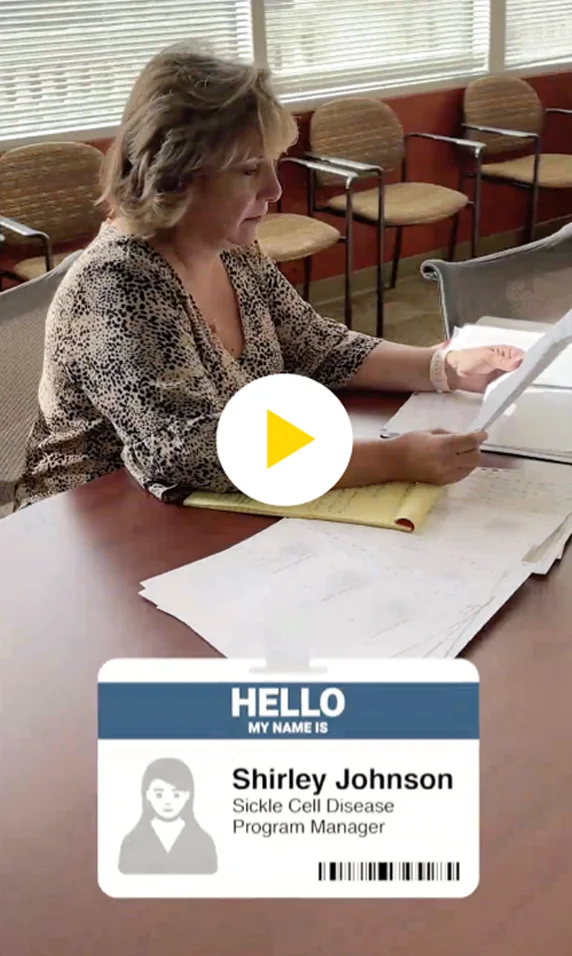The page you are about to visit is not owned or operated by Forma. Forma is not responsible for your use of the site, nor does it control, endorse, or guarantee any aspect of your experience there. Please read the site’s Terms of Use and Privacy Policy and confirm you are comfortable with those terms, which may differ from Forma’s, before using the site.
CONTINUEHelp us be even better by letting us know what we're missing. We appreciate you're calling it out.
SUBMITDon't miss this chance to stay up to date on the latest in sickle cell transition information and resources.
I may opt out at any time by clicking the “unsubscribe” link within any email I receive, by calling 1-877-744-2579, or by sending a letter containing my name, address(es), and email address(es) to Novo Nordisk, 800 Scudders Mill Road, Plainsboro, New Jersey 08536. To better understand how Novo Nordisk values your privacy and what other information may be collected from you while you use this service, please see our Privacy Notice. GET ME LOOPED IN
Transitioning is a process. Each little step keeps getting bigger until you're ready for the biggest step of all – moving to adult care. But as you follow the route, you'll find helpful roadmaps: tips and advice that offer direction, point you to where you should go, and help you take control of your care.
In short, all the information that gets you to the bridge where you say goodbye to pediatric dependence on one side, while welcoming your new adult independence on the other.
As a person with SCD, you are legally classified as someone with a genetic disability. The federal government has put in place several laws — the Americans with Disabilities Act (ADA) and the Rehabilitation Act of 1973 — that aim to prevent discrimination and provide methods for accommodation in the educational system and the workplace.
ACCOMMODATIONS FOR EDUCATION
ACADEMIC AND NON-ACADEMIC EXAMPLES
ACCOMMODATIONS FOR EMPLOYMENT
A 504 plan is an accommodation for education that a young person with special healthcare (such as SCD) may need to participate equally with others in general education programs.
Examples include:
In college, you can ask for 2 types of accommodations: non-academic and academic.

Medical ID card
This is a card that you should carry with you always. Keeping it in your wallet is a good idea. The card shows your medical details, physician info, and emergency contact information.
Health and immunization records
There may be adult immunizations that you need in addition to your pediatric shots.
Health insurance coverage
Coverage can change when you turn 18. Will you need to reapply, purchase, or will your parent's coverage cover you if you go to college? It's important to know your health insurance situation before you transition.
Power of attorney for healthcare
This is a legal document that allows anyone over the age of 18 to make healthcare decisions for you if you are unable to make them for yourself.
Health insurance card
Your insurance provider will issue you a card that you should carry with you at all times. You should also be familiar with how your insurance works. These are called the "Terms of insurance." A few basic questions that you could ask are:

You have to give permission for your parents to see your medical records or to talk to your doctor about your treatment

You have to sign all medical documents; your parents can't sign for you

You will have to begin to show your independence by taking responsibility for your health

Your caregiver may help you find your first adult doctor, but making and going to appointments will be your responsibility

You should make a note of your questions or concerns before each visit

Self-advocacy and shared decision-making may become a part of your healthcare vocabulary
MOVING TO ADULT CARE
An online tool from hematologist.org to help you find a local hematologist.
VISIT NOWFrom gottransition.org, an example of the type of transfer of care letter that your pediatrician will send to your new doctor when you transition to adult care.
VISIT NOWA sample transfer of care checklist and transfer package from gottransition.org.
VISIT NOWTransition TBH is a series of videos where SCD patients, doctors and social workers share their stories and tips for transition. We’ve handpicked our guests to make sure that you get something valuable out of this series.










Dr. Nirmish Shah, the Director of the SCD Transition Program at Duke University, talks about the importance of transition and shares his expert tips to ace it.